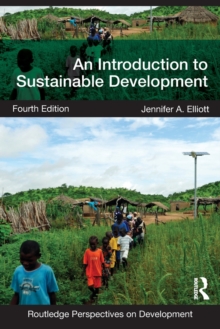
Information and Communication Technology for Development (ICT4D) PDF
by Richard Heeks
Part of the Routledge Perspectives on Development series
Description
Mobile phones are close to ubiquitous in developing countries; Internet and broadband access are becoming commonplace. Information and communication technologies (ICTs) thus represent the fastest, broadest and deepest technical change experienced in international development. They now affect every development sector - supporting the work of hundreds of millions of farmers and micro-entrepreneurs; creating millions of ICT-based jobs; assisting healthcare workers and teachers; facilitating political change; impacting climate change; but also linked with digital inequalities and harms - with the pace of change continuously accelerating.
Information and Communication Technology for Development (ICT4D) provides the first dedicated textbook to examine and explain these emerging phenomena. It will help students, practitioners, researchers and other readers understand the place of ICTs within development; the ICT-enabled changes already underway; and the key issues and interventions that engage ICT4D practice and strategy.
The book has a three-part structure. The first three chapters set out the foundations of ICT4D: the core relation between ICTs and development; the underlying components needed for ICT4D to work; and best practice in implementing ICT4D. Five chapters then analyse key development goals: economic growth, poverty eradication, social development, good governance and environmental sustainability. Each chapter assesses the goal-related impact associated with ICTs and key lessons from real-world cases. The final chapter looks ahead to emerging technologies and emerging models of ICT-enabled development.
The book uses extensive in-text diagrams, tables and boxed examples with chapter-end discussion and assignment questions and further reading. Supported by online activities, video links, session outlines and slides, this textbook provides the basis for undergraduate, postgraduate and online learning modules on ICT4D.
Information
-
Download - Immediately Available
- Format:PDF
- Pages:428 pages
- Publisher:Taylor & Francis
- Publication Date:08/11/2017
- Category:
- ISBN:9781317313571
Other Formats
- EPUB from £35.99
- Paperback / softback from £39.75
- Hardback from £145.00
Information
-
Download - Immediately Available
- Format:PDF
- Pages:428 pages
- Publisher:Taylor & Francis
- Publication Date:08/11/2017
- Category:
- ISBN:9781317313571










